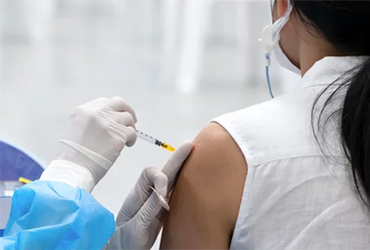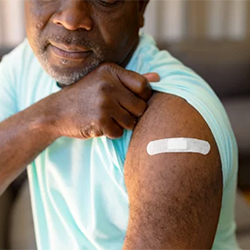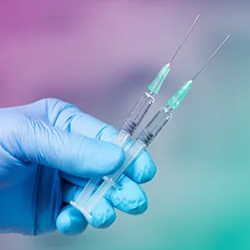By Ethan Covey
With monoclonal antibodies lacking efficacy, the CDC urged all people—especially those who are immunocompromised—to stay up to date on COVID-19 vaccinations to prevent serious illness, hospitalization and death.
Although people who are moderately to severely immunocompromised may not mount a strong vaccine-mediated immune response, the CDC stressed that receiving the updated bivalent booster dose when eligible provides protection.
In addition, immunocompromised adults have additional ways to prevent COVID-19 infection, such as masking, physical distancing, frequent handwashing and options for improving ventilation in one’s home, according to the CDC.

The report comes as a response to the FDA’s recent deauthorization of tixagevimab co-packaged with cilgavimab (Evusheld, AstraZeneca) due to the drug’s ineffectiveness against the COVID-19 variants currently circulating in the United States (MMWR Morb Mortal Wkly Rep 2023;72[5]:128-131).
“Given the high prevalence of variants that have mutations rendering Evusheld inactive, CDC felt it was important to reiterate the other available prevention measures available to persons who are immunocompromised as well as their household members,” Pragna Patel, MD, CAPT, a board-certified internist with the U.S. Public Health Service and the CDC’s National Center for Immunization and Respiratory Diseases, in Atlanta, told Infectious Disease Special Edition.
In addition, the CDC suggested that immunocompromised people develop a “COVID-19 action plan.” This includes ensuring that individuals know where to access testing and treatment if needed, and discussing a care plan with their primary physician in the case of infection.
“We think it is important for persons who are at severe risk of disease to discuss their specific COVID-19 treatment options with their physicians before they become infected with SARS-CoV-2,” Dr. Patel concluded.
Dr. Patel reported no relevant financial disclosures.




